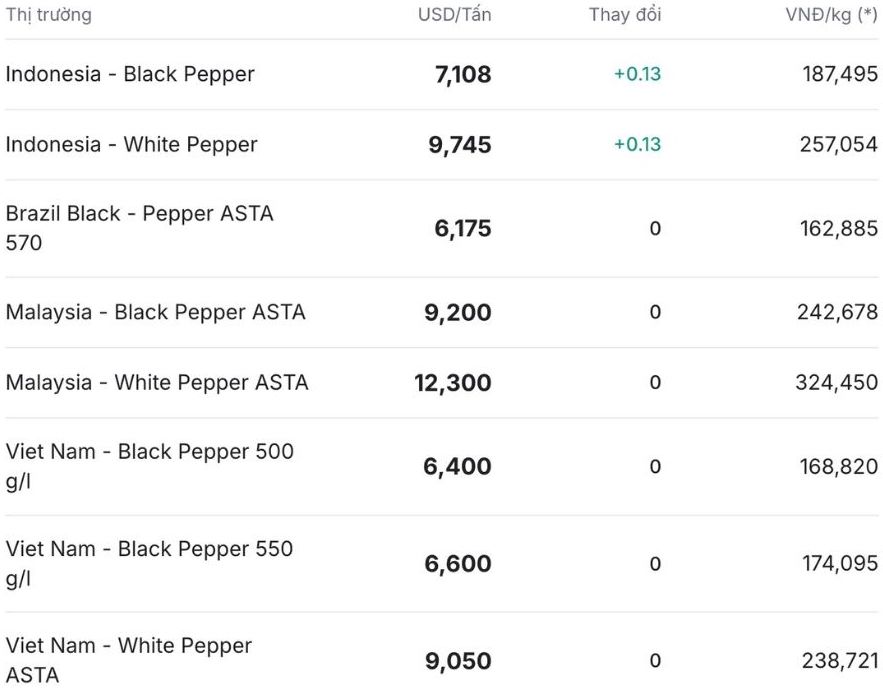Domestic pepper prices: Continue to decrease
As of 1:30 p.m. today (November 15), the domestic pepper market has turned down in some areas, averaging VND 144,700/kg. Currently, the price ranges from 144,000 - 145,500 VND/kg.
After the price increase, key areas reversed and plummeted, returning the previous price mark. The price list on the market in key areas is as follows:
Gia Lai and Ho Chi Minh City have not changed prices, bringing them to the market at 144,000 VND/kg and 144,500 VND/kg respectively.
The three provinces of Dak Lak, Dong Nai and Lam Dong adjusted the price to be 500 VND/kg lower, listed in the range of 144,500 - 145,500 VND/kg.
World pepper prices: Reversal to increase
In the world market, pepper prices are mostly stable in the regions. In particular, the Indonesian exchange - one of the most vibrant markets - "turned around" to increase prices. Currently, these two items both increased by 0.13%, trading in the range of 7,108 - 9,745 USD/ton (equivalent to 187,495 VND/kg - 257,054 VND/kg).
On the other hand, the Brazilian market has adjusted, currently holding at 6,175 USD/ton (about 162,885 VND/kg). Meanwhile, black and white pepper remained unchanged, trading at 12,300 USD/ton and 9,200 USD/ton.
In the pepper export market of Vietnam, the price of black pepper of 500 g/l and 550 g/l is flat, anchored at 6,400 - 6,600 USD/ton. ASTA white pepper prices remain high, currently standing at 9,050 USD/ton (equivalent to 238,721 VND/kg).

Assessment and forecast
According to the Vietnam Pepper and Spices Association (VPSA), on November 14, President Trump signed an executive decree amending the scope of counterpart tariffs announced by the US on April 2, 2025 to deal with a large trade deficit.
Accordingly, some eligible agricultural products will no longer be subject to countervailing taxes or in other words: The US exempts/eliminates from the list of tariffs on these items. The items exempted from counterpart tax include: Coffee and tea, tropical fruits and juices, cocoa and spices, bananas, tangerines, tomatoes and beef.
VPSA assessed the US exemption of counterpart duties on spices as a good signal: Spices imported into the US can reduce tax barriers if they are exempt. For Vietnam - a major exporting country of pepper and spices, this is a favorable opportunity to regain market share in the US market if the enterprise meets import, quality and certification standards.











